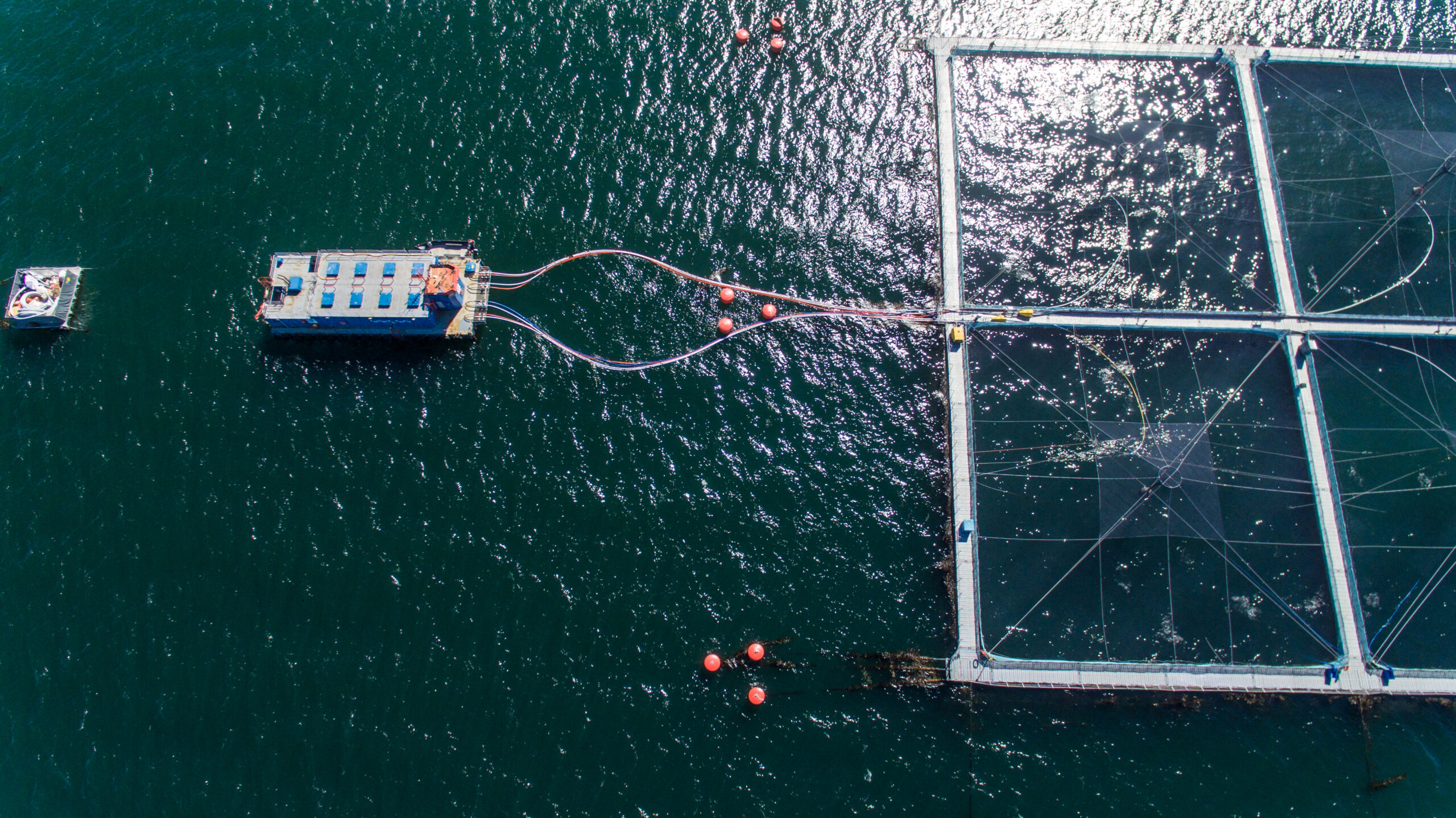The agreement is a pioneering initiative in the Chilean aquaculture industry, and represents an explicit commitment to contribute to the environment and issues relevant to local communities, such as GHG emissions, raw materials that do not cause the deforestation of native forests and using renewable energy.
The pandemic has focused everyone’s attention on caring for people’s health and the environment, and aquaculture has also participated in this process. The industry currently provides services and products to customers and consumers who are more informed, and who are aware of the impact of their behavior on the environment.
Salmones Camanchaca signed an agreement to supply fish feed for the next two years with two fish feed suppliers: BioMar and Skretting. Its aim is to continually and proactively improve its management of the environmental and social risks associated with its value chain.
Manuel Arriagada, CEO at Salmones Camanchaca confirmed, “Sustainability is a key aspect of creating value at our company and this year we made progress towards achieving the targets within our sustainability model, which include very specific targets and action plans, such as the agreement we have just signed with our food suppliers.“ He added, “Customers expect their suppliers toadopt high standards, and implement initiatives that demonstrably contribute to minimizing their social and environmental impact.”
Alfredo Tello, Sustainability Manager at Salmones Camanchaca said, “Feed production is a significant component of the social and environmental footprint of salmon farming, due to the wide range of raw materials and supply chains involved in this process. Actively contributing to the sustainable development of salmon farming requires working in partnership with our food suppliers, and this commitment is a big step in that direction.”
Trygve Berg Lea is the Sustainability Director at Skretting Global, which is a leading aquaculture feed company, and he said, “We are committed to achieving the sustainability targets adopted by each customer. Skretting’s parent company Nutreco has made a worldwide commitment to establish Science Based Targets that reduce greenhouse gas emissions. Furthermore, Skretting Chile has recently signed an agreement supplying it with 100% renewable energy, together with other initiatives involving health and welfare, climate, circularity and good citizenship. These initiatives will support Camanchaca to reach its target of becoming carbon neutral by 2025.”
Ronald Barlow, CEO at Skretting Chile added, “Our business uses internal processes that reduce water and fuel use, and focus on reducing and reusing materials such as plastic and pallets. We monitor our CO2 emissions and our carbon footprint, and regularly report them to our head office in Norway. We are planning a major investment in 2021, which will optimize the use of thermal energy based on alternative sources. All these initiatives aim to reduce our impact on the environment and demonstrate our commitment and our achievements within the global aquaculture industry supply chain.”
Vidar Gundersen, Global Sustainability Director at BioMar Group emphasized this initiative, “At BioMar we have been analyzing our feed life cycle for several years, in order to make well-informed sourcing decisions. We are proud of the progress achieved with companies such as Salmones Camanchaca on this journey towards sustainability. We are committed not only to vital targets such as reducing greenhouse gas emissions, eutrophication and a supply chain free of deforestation, but also to adopting alternative raw materials based on their impact on the environment.”
Eduardo Hagedorn, CEO at BioMar Chile expressed his interest in achieving progress together with Salmones Camanchaca: “We monitor and optimize sustainability using our BioSustain™ program, which enables us and our customers to make informed decisions regarding sustainability issues. We will undoubtedly move forward with Salmones Camanchaca and together we will continue to search for the best sustainable development solutions for our sector.”
THE AGREEMENT
This is a pioneering initiative within the Chilean industry and establishes that both companies will publish a plan during the first quarter of 2021 that contains four specific targets:
1. Formulate diets using raw materials that have not contributed to the deforestation of native forests anywhere in the world.
2. Agree greenhouse gas reduction targets, in accordance with the guidelines from the Science Based Targets initiative.
3. Use 100% renewable energy.
4. Implement the Life Cycle Analysis method, which selects ingredients for fish diets on the basis of reducing their overall impact on the environment.
Correct implementation requires Skretting and Biomar to describe targets, deadlines and KPIs, and provide accreditations where applicable.
In 2019, Salmones Camanchaca was the first salmon farming company to commit to achieving carbon neutrality by 2025 for their Scope 1 and Scope 2 emissions under the Greenhouse Gas Protocol. The company also published its new Sustainability Model, which is built on pillars that include encouraging prosperous communities and healthy ecosystems.
 Contacto
Contacto  Denuncias
Denuncias  Est. Financieros
Est. Financieros  Portal Clientes
Portal Clientes  Proveedores
Proveedores 

